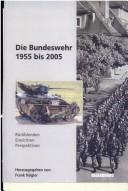| Listing 1 - 10 of 10 |
Sort by
|
Book
ISBN: 3789022136 Year: 1990 Publisher: Baden-Baden Nomos
Abstract | Keywords | Export | Availability | Bookmark
 Loading...
Loading...Choose an application
- Reference Manager
- EndNote
- RefWorks (Direct export to RefWorks)
Natural law --- Peace --- Political science --- Utopias --- War
Digital
ISBN: 9783486711820 9783486588156 Year: 2011 Publisher: Berlin ;; Boston Oldenbourg Wissenschaftsverlag
Abstract | Keywords | Export | Availability | Bookmark
 Loading...
Loading...Choose an application
- Reference Manager
- EndNote
- RefWorks (Direct export to RefWorks)

ISBN: 9783486711837 9783486579581 Year: 2011 Publisher: Berlin ;; Boston Oldenbourg Wissenschaftsverlag
Abstract | Keywords | Export | Availability | Bookmark
 Loading...
Loading...Choose an application
- Reference Manager
- EndNote
- RefWorks (Direct export to RefWorks)

ISBN: 3486579584 3486711830 Year: 2007 Publisher: De Gruyter Oldenbourg
Abstract | Keywords | Export | Availability | Bookmark
 Loading...
Loading...Choose an application
- Reference Manager
- EndNote
- RefWorks (Direct export to RefWorks)
Book
ISBN: 348658815X 3486711822 Year: 2009 Publisher: De Gruyter Oldenbourg
Abstract | Keywords | Export | Availability | Bookmark
 Loading...
Loading...Choose an application
- Reference Manager
- EndNote
- RefWorks (Direct export to RefWorks)
Book
ISBN: 1911423908 131555531X 1317023250 1472440943 1322872678 1472440935 Year: 2015 Publisher: Farnham, Surrey, [England] ; Burlington, [Vermont] : Ashgate Publishing Group,
Abstract | Keywords | Export | Availability | Bookmark
 Loading...
Loading...Choose an application
- Reference Manager
- EndNote
- RefWorks (Direct export to RefWorks)
The Anglo-German rivalry in battleship building at the beginning of the twentieth century has been blamed by many as a major cause of the First World War, yet 'the Great Naval Race' has not received the attention that its notoriety would merit. This volume facilitates an understanding of how the two parties interacted by providing a comprehensive survey of existing scholarship, as well as important primary sources from a range of archives. By offering German documents in their original text and in English translation, this book makes the German role in this conflict accessible to English speak
Naval strategy --- History --- Great Britain. --- Germany. --- Great Britain --- Germany --- History, Naval --- Baltic Sea. --- Bernard von Bulow. --- Dreadnought. --- First World War. --- Heligoland. --- Kaiser Wilhelm II. --- Mediterranean. --- Pax Britannica. --- Sir John Fisher. --- Submarines. --- The Anglo-German naval race. --- The Edwardian Navy. --- The Victorian Navy. --- Tirpitz. --- Warships. --- Winston Churchill. --- Military planning
Book
ISBN: 9781472440938 9781315555317 9781317023241 9781317023258 Year: 2015 Publisher: Aldershot [etc.] Ashgate
Abstract | Keywords | Export | Availability | Bookmark
 Loading...
Loading...Choose an application
- Reference Manager
- EndNote
- RefWorks (Direct export to RefWorks)
Naval strategy --- Military planning --- Stratégie navale --- Planification militaire --- History --- Histoire --- Great Britain. --- Germany. --- Great Britain --- Germany --- Grande-Bretagne --- Allemagne --- History, Naval --- Histoire navale --- Stratégie navale
Book

ISBN: 0813166063 9780813166063 9780813166070 0813166071 0813166055 9780813166056 9780813166056 Year: 2015 Publisher: Lexington, Ky University Press of Kentucky
Abstract | Keywords | Export | Availability | Bookmark
 Loading...
Loading...Choose an application
- Reference Manager
- EndNote
- RefWorks (Direct export to RefWorks)
During the first two years of World War I, Germany struggled to overcome a crippling British blockade of its mercantile shipping lanes. With only sixteen dreadnought-class battleships compared to the renowned British Royal Navy's twenty-eight, the German High Seas Fleet stood little chance of winning a direct fight. The Germans staged raids in the North Sea and bombarded English coasts in an attempt to lure small British squadrons into open water where they could be destroyed by submarines and surface boats. After months of skirmishes, conflict erupted on May 31, 1916, in the North Sea near Jutland, Denmark, in what would become the most formidable battle in the history of the Royal Navy. In Jutland, international scholars reassess the strategies and tactics employed by the combatants as well as the political and military consequences of their actions. Most previous English-language military analysis has focused on British admiral Sir John Jellicoe, who was widely criticized for excessive caution and for allowing German vice admiral Reinhard Scheer to escape; but the contributors to this volume engage the German perspective, evaluating Scheer's decisions and his skill in preserving his fleet and escaping Britain's superior force. Together, the contributors lucidly demonstrate how both sides suffered from leadership that failed to move beyond outdated strategies of limited war between navies and to embrace the total war approach that came to dominate the twentieth century. The contributors also examine the role of memory, comparing the way the battle has been portrayed in England and Germany. An authoritative collection of scholarship, Jutland serves as an essential reappraisal of this seminal event in twentieth-century naval history
Jutland, Battle of, 1916. --- Skagerrak, Battle of, 1916 --- World War, 1914-1918 --- Campaigns
Digital

ISBN: 9783486711776 9783486582833 Year: 2014 Publisher: Berlin ;; Boston Oldenbourg Wissenschaftsverlag
Abstract | Keywords | Export | Availability | Bookmark
 Loading...
Loading...Choose an application
- Reference Manager
- EndNote
- RefWorks (Direct export to RefWorks)
Digital

ISBN: 9783486594645 9783486576740 Year: 2009 Publisher: Berlin ;; Boston Oldenbourg Wissenschaftsverlag
Abstract | Keywords | Export | Availability | Bookmark
 Loading...
Loading...Choose an application
- Reference Manager
- EndNote
- RefWorks (Direct export to RefWorks)
| Listing 1 - 10 of 10 |
Sort by
|

 Search
Search Feedback
Feedback About UniCat
About UniCat  Help
Help News
News